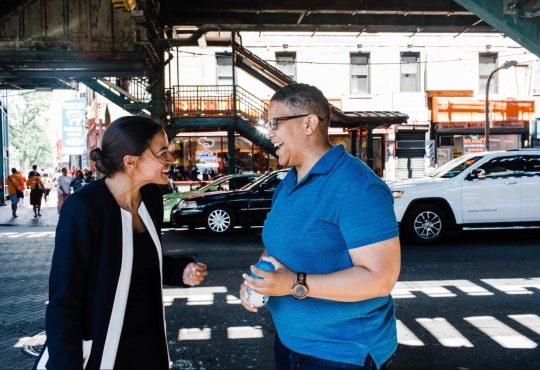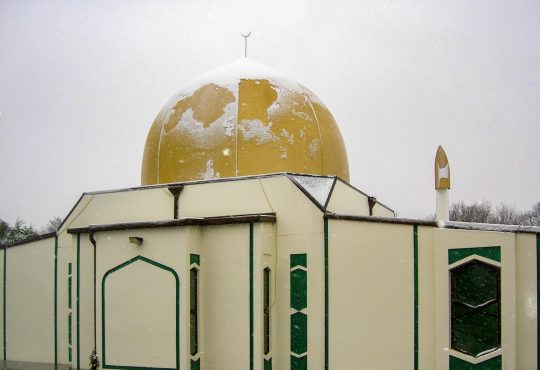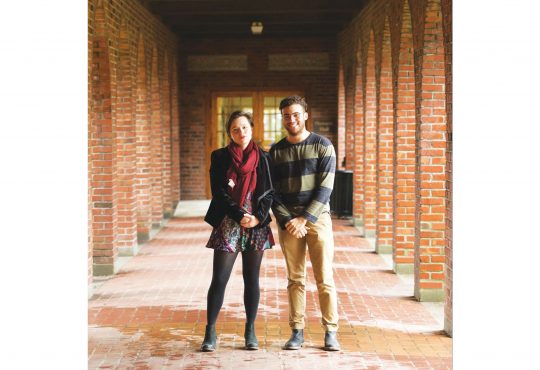Janku Land hosts DIY documentary screening of ‘Afro-Punk’ and conversation with director James Spooner

There was an evening of film, reflection, music and celebration last Friday night at the consignment and record store Janku Land. The night began with the screening of the 2003 documentary film “Afro-Punk” by James Spooner, with a presentation given by the director himself, and finished with a joyous musical performance by Tacoma’s own Mirrorgloss.
The film spilled over with DIY ethos and presentation. Through various interviews, “Afro-Punk” examines and critiques the experience of black people in the heavily white-dominated punk scene, each interviewee offering their experiences as the often only black person at the hardcore show. The film artfully and deliberately examines and interrogates the similar experiences of so many of its subjects, and how they navigated feeling like an outsider in what is often thought of as an outsider community.
After the film finished, director James Spooner gave a presentation and discussed his journey with Afro-Punk. Spooner “joined” the punk scene while he was a teenager in a small, desert town in California. After moving with his mom to New York, and growing up and out of his self-described “poser-punk” era, he decided to investigate some of the issues he saw within the punk community.
“I decided to do the punkest thing that I felt that I could do, which was making a film critiquing the punk scene — I needed to hear conversations about identity, conversations around privilege,” Spooner said.
“When a punk is selling out what they’re doing is selling out their community … community is a very important, essential part of the punk scene,” Spooner said. Through DIY screenings and message board facilitating, he felt he was doing his part to foster an Afro-Punk community. That sense of belonging might be the most important thing offered from the punk scene.
He wanted to create a lane for black people who felt like they didn’t fit into what he saw as a narrow set of expectations for members of the black community. The film grew into a bit of a movement and eventually began to include the “Afro-Punk Festival” as an annual celebratory event for the members of this community to gather and celebrate.
Unfortunately, the Afro-Punk festival began to grow and move in a direction that Spooner felt went against his own punk ethos and personal politics. Spooner spoke on this topic, saying that once he began hearing homophobic, sexist and aggressively non-inclusive ideas being spouted by artists he did not know at the Afro-Punk festival as well as the realities of Afro-Punk within capitalism, he decided to leave. Spooner said that in a capitalist society, things either grow and change, or die.
Spooner thanked the audience for coming together to view the film and the crowd moved into the Janku Land operated space within King’s Books to watch electro-pop duo Mirrorgloss perform.
During a few minutes of technical difficulties, the group spoke briefly about how the Afro-Punk film had spoken to them, and how their friendship was in-part cultivated by the punk and hardcore scene. Despite not performing “punk” music, they were the perfect musical act to send off the night.
“Mirrogloss is a dance-pop band. Naj and Del are amazing people, and they’re from Tacoma. Sweet Pea from Kings [Books] and I immediately thought they would be the best choice on having perform after the screening,” Taiga Miyama, owner and founder of Janku Land, said.
After the sound had been fixed, the duo ran through a celebratory, joyous 30-minute set of sweet-as-sugar pop. It was a perfect cap to the evening: a group of people, a community, coming together for a DIY screening of a DIY film about community, and a DIY band ending it all with a glow of positivity. It was an evening that surely did the name and ethos of Afro-Punk proud.




